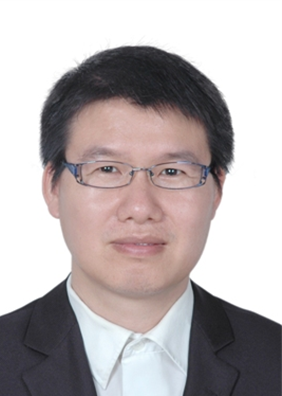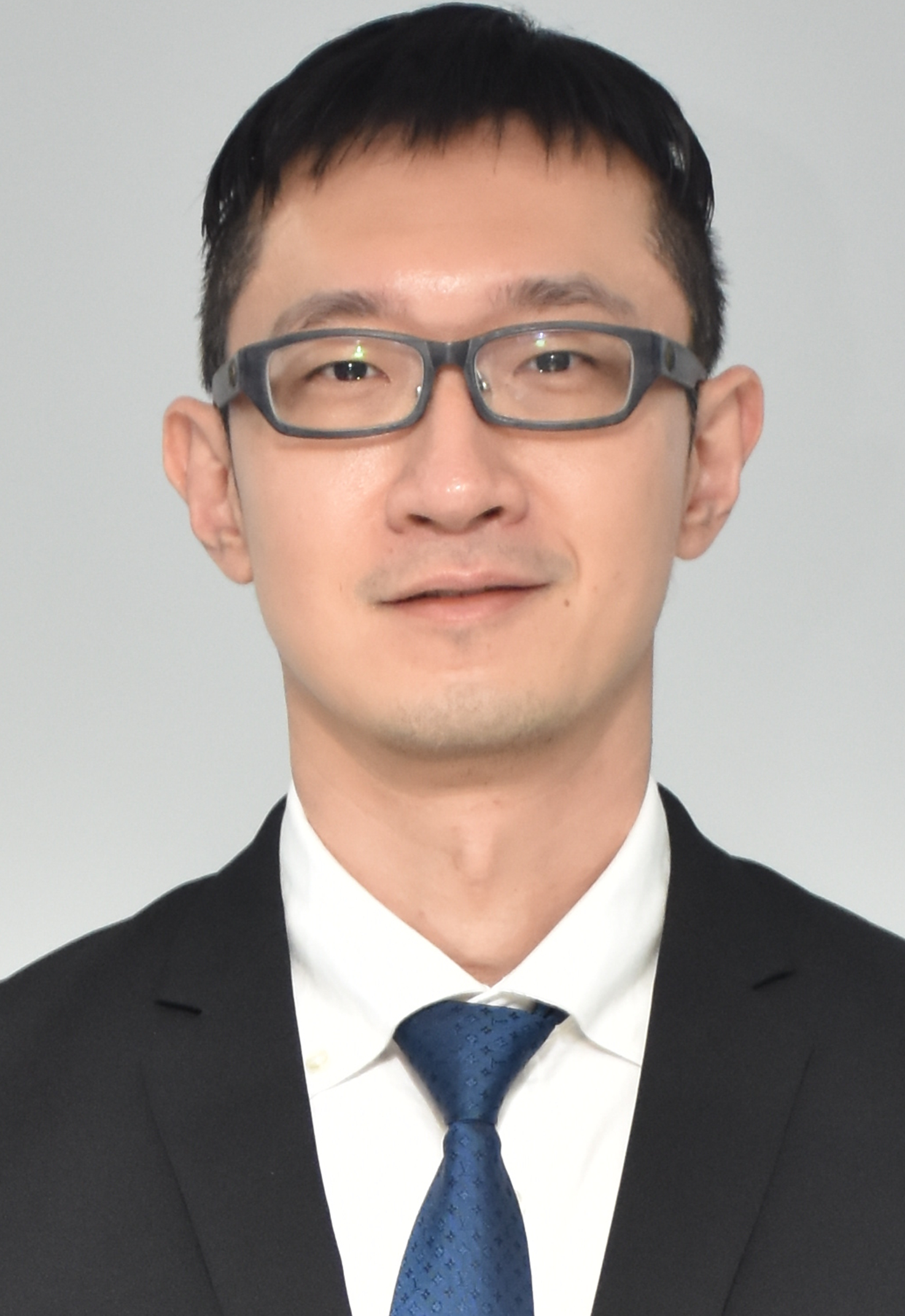| Prof. Ts. Dr. Wan Mohd Nasir Wan KadirUniversiti Teknologi Malaysia, Malaysia BIO: Dr. Wan Mohd Nasir Wan-Kadir is a Professor of Software Engineering at the Faculty of Computing, Universiti Teknologi Malaysia (UTM). He earned his Ph.D. in Software Engineering from The University of Manchester and has nearly 30 years of academic experience. He has held prominent leadership roles, including Dean of the Faculty of Computing at UTM, Chairman of the Council of ICT Deans (MaDICT), and Head of the ICT Cluster at the National Council of Professors. Dr Wan’s research and consultancy work centres on enhancing the efficiency and quality of large-scale software systems. His research has secured over RM 1 million in funding and includes high-impact consultancy projects such as Internal Software Quality Assurance for the KVMRT2, RTS Link, and SME-HIP1 projects. His current research interests include Software Quality Assurance, Software Testing, and the application of AI/ML/DL in Software Engineering. Professor Wan has published over 120 research publications, including journal articles, conference papers, books and book chapters, contributing significantly to the advancement of software engineering both in academia and industry. Title: Software Engineering Transformations: AI as Companions in the Development Lifecycle Abstract: Software Engineering is being transformed by Artificial Intelligence (AI), especially Large Language Models (LLMs), which now act as companions throughout the Software Development Lifecycle (SDLC). From requirements analysis and code generation to testing and DevOps, AI enhances productivity and supports developers in strategic and creative tasks. Rather than replacing human expertise, AI complements it, reshaping roles and workflows to enhance overall efficiency. Despite its promise, challenges remain around reliability, security, and ethics. As adoption grows, AI’s role as a collaborative partner is key to building adaptive, efficient, and trustworthy software systems. |
| Prof. Ts. Dr. Mohd Naz’ri MahrinIEEE Senior Member, Universiti Teknologi Malaysia, Malaysia BIO: Prof. Dr. Mohd Naz’ri Mahrin served as the Dean of the Razak Faculty of Technology and Informatics (RFTI) at Universiti Teknologi Malaysia (UTM) from January 2022 to May 2024. Starting in June 2024, he has taken on the critical role of being the inaugural Dean for the newly established Faculty of Artificial Intelligence (FAI) at UTM, a national initiative dedicated to developing the future workforce in Artificial Intelligence. He has served UTM since 1997, contributing to both academia and research in advanced technology. A proud alumnus of UTM, Dr. Naz’ri earned his BSc in Computer Science and MSc in Real-Time Software Engineering before completing his PhD in Software Engineering from the University of Queensland, Australia. Prior to his current role, he held significant administrative positions as the Deputy Dean (Academic and Student Affairs) and Assistant Dean (Quality and Strategy). Dr. Naz’ri’s expertise spans Software Engineering, Information Systems, Information Security Management Systems, and AI for Big Data Analytics. Navigating the complexities of a multidisciplinary faculty has posed challenges, but Dr. Naz’ri has showcased transformative leadership, steering the faculty towards success on multiple fronts. His leadership style, characterised by a balanced approach to both people and tasks, renders him highly approachable while ensuring effectiveness in completing assigned tasks. Dr. Naz’ri is a Senior Member of IEEE and the IEEE Computer Society (ID: 91230223). Title: Beyond Algorithms: Shaping the Future of AI with Human-Centered Intelligence Abstract: As we stand at the crossroads of neuroscience and artificial intelligence, a new frontier emerges—one that seeks to unlock the mysteries of the brain and heart neurons to inspire the next generation of intelligent systems. This keynote explores how the convergence of biological insight and technological innovation is ushering in an era of experiential AI, where machines are not only data-driven but also context-aware, emotionally attuned, and capable of learning from lived experience. By decoding the neural symphony of cognition and emotion, we gain profound inspiration for designing AI that mirrors the richness of human understanding. The talk will delve into breakthroughs in neuro-symbolic learning, aKective computing, and embodied cognition highlighting how these paradigms are reshaping the future of AI. More than just algorithms, the future of AI lies in systems that feel, adapt, and evolve through experience—just as humans do. This keynote invites researchers, technologists, and visionaries to reimagine intelligence as a dynamic interplay between mind, heart, and machine, forging a path toward truly empathetic and experiential AI. |
| Prof. Dr. Liang YangHunan University, China BIO: Yang Liang, Professor and Doctoral Supervisor, was born in 1977. He received his Ph.D. degree from Sun Yat-sen University in 2006 and conducted postdoctoral research at City University of Hong Kong and Texas A&M University at Qatar (TAMUQ). His main research areas include wireless communications and optical wireless communications, with over 130 IEEE journal papers published, including 8 highly cited papers and 2 hot papers. His Google Scholar and ResearchGate H-index is 41, and he has been consecutively listed in the Stanford World's Top 2% Scientists for five years. He was also named an Elsevier Highly Cited Chinese Researcher in 2023 and 2024. He has led 5 National Natural Science Foundation of China (NSFC) projects and 1 key project under the National Key R&D Program, while serving as a sub-project leader for 1 NSFC Regional Joint Fund for Innovation and Development. Title: Toward 6G: Next-Generation Network Architectures and Enabling Technologies Abstract: In this talk, we first introduce a work and its title is active RIS-aded NOMA-enabled space-air-ground integrated networks with cognitive radio. Then, a work with title "Multi-Layer Transmitting RIS-Aided Receiverfor Collaborative Jamming and Anti-Jamming Networks" is introduced. |
| Prof. Dr. Por Lip YeeIEEE Senior Member, Universiti Malaya, Malaysia BIO: Dr. Lip Yee, an esteemed Professor at the Department of System and Computer Technology within the Faculty of Computer Science and Information Technology at the Universiti Malaya, Malaysia, earned his Ph.D. from the Universiti Malaya under the mentorship of Prof. Abdullah bin Gani in 2012. He is also a senior member of the IEEE. Since then, Dr. Por has made significant contributions to academia, research, and industry. Dr. Por's research endeavors have been at the forefront of technological advancement, particularly in the domains of security and quality assurance of information (NEC 2020: 0611) and machine learning (NEC 2020: 0613). His research interests include machine learning, support vector machines, deep learning, long-short-term memory, computer vision, AIoT, IoT, blockchain, authentication, graphic passwords, PIN-entry, cryptography, data hiding, steganography, and watermarking. His pioneering work has garnered recognition both nationally and internationally, with over 100 academic papers published in reputable journals. Notably, he was among the first few pioneers to publish in the top 1% of ISI journals, with commendable citations across platforms such as Web of Science, Scopus, and Google Scholar. Web of Science (H-index: 18, 1343 citations), Scopus (H-index: 22, 1748 citations), and Google Scholar (H-index: 29, 2777 citations) databases (last update: July 13, 2024).https://www.webofscience.com/wos/author/record/B-5309-2010. Title: Human-Centric Graphical Passwords: A Cognitive Approach to Shoulder-Surfing Protection Abstract: This study proposes a novel authentication scheme that combines cognitive psychology with a graph-based graphical password system to defend against shoulder-surfing attacks while preserving usability. Traditional alphanumeric methods are often insecure and cumbersome, and existing graphical systems remain vulnerable to observational threats. To address these issues, the proposed scheme employs dynamic image segmentation, randomized visual overlays, and adaptive cognitive load balancing within a structured graph interface. The result is a dynamic and user-friendly authentication process that significantly reduces the risk of visual inference. Experiments involving simulations and user evaluations show an 18% improvement in authentication speed and increased resistance to shoulder-surfing. This approach is well-suited for high-security applications in healthcare, finance, and education. |
| Assist. Prof. Dr. Linchao ZhuZhejiang University, China Dr. Linchao Zhu (朱霖潮) is currently aResearcher and Doctoral Supervisor with the College of Computer Science at Zhejiang University. Before that, he was a Lecturer at the ReLER lab, University of Technology Sydney. His research focus includes AI simulation, AI for DFT and LLMs. He received his Ph.D. degree in University of Technology Sydney, advised by Prof. Yi Yang. He graduated from Zhejiang University with a bachelor’s degree. His primary research focuses on large language models and intelligent physical simulation, aiming to achieve precise prediction and interaction with the physical world. He has won eight international competition championships, including: NIST TRECVID LOC Challenge Champion (2016), THUMOS Action Recognition Challenge Champion (2015), EPIC-KITCHENS First-Person Action Recognition Champion (2019, 2020), CVPR MABe Multi-Agent Behavior Modeling Challenge Champion (2022). Additionally, he has served as a Guest Editor for journals such as Neurocomputing and CVIU, and as an Area Chair for top-tier conferences including IEEE MLSP'21, ICIP'24, ECCV'24, NeurIPS'24, and CVPR'25. He has also organized multiple workshops at international conferences. Title: Video Generation and Editing with Diffusion Models Abstract: This talk explores the latest advancements in video generation and editing. Video generation based on diffusion models and Transformer architecture has achieved many breakthroughs, bringing significant changes to the video creation process. The talk focuses on key improvements for long-sequence video generation, multi-modal conditional control mechanisms, cross-frame feature consistency optimization methods, and the implementation of multi-attribute editing. It analyzes the current technical challenges in video generation, including difficulties in maintaining spatio-temporal consistency, insufficient long-range dependency modeling, and low detail fidelity, and proposes solutions based on improved attention mechanisms and temporal information encoding optimization. |





